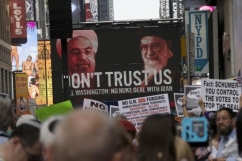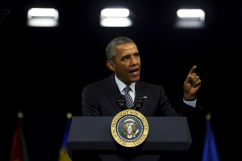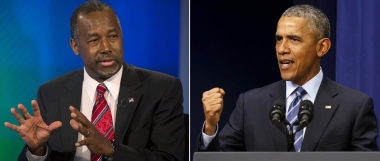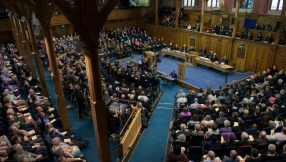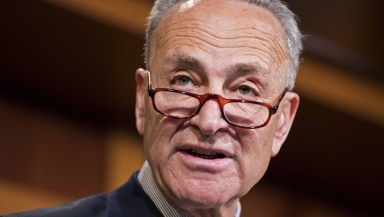
Almost six of 10 Americans want Congress to reject the controversial Iran nuclear deal that will free up to $180 billion worth of frozen Iranian assets in exchange for Tehran accepting restrictions in its use of atomic energy. Critics fear that Iran will use the huge amount of money it will get to support terrorist groups in the Middle East and elsewhere.
The deal was reached on July 14 between Iran and six powers comprising the US, United Kingdom, France, China, Russia and Germany.
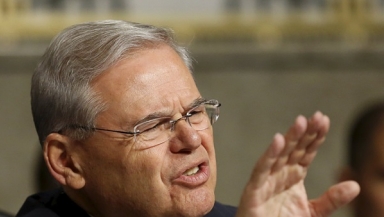
In a CNN/ORC poll among 1,001 Americans conducted August 13-16, 56 percent said they think Congress should reject it while 41 percent said it should approve the deal.
The opposition to the deal was up from 52 percent last month.
The same poll showed 60 percent of Americans disapproved President Obama's handling of the US relationship with Iran while 38 percent said they approved.
According to CNN, the Americans' growing disapproval of the Iran deal comes from the wrangling between Republicans and Democrats over it.
Republican opposition to the deal increased to 83 percent from 66 percent while Democrats' support to the deal increased to 70 percent from 61 percent in July.
Republicans, including presidential candidates, have opposed the Iran deal since it was announced.
Democratic presidential bet Hillary Clinton is supporting the deal, making it a major issue in the 2016 election.
President Obama said he will veto the deal if Congress decides not to approve it.
At least two Democratic senators—Charles Schumer of New York and Bob Menendez of New Jersey—have broken party ranks and announced their opposition to deal, vowing to override President Obama's veto. Eleven more Senate Democrats are needed to override Obama's veto.
In the same poll, half of the respondents were asked "Do you favor or oppose an agreement that would ease some of those economic sanctions and in exchange require Iran to accept major restrictions on its nuclear program but not end it completely and submit to greater international inspection of its nuclear facilities?"
A total of 50 percent said they are in favor while 46 percent said they are opposed.











